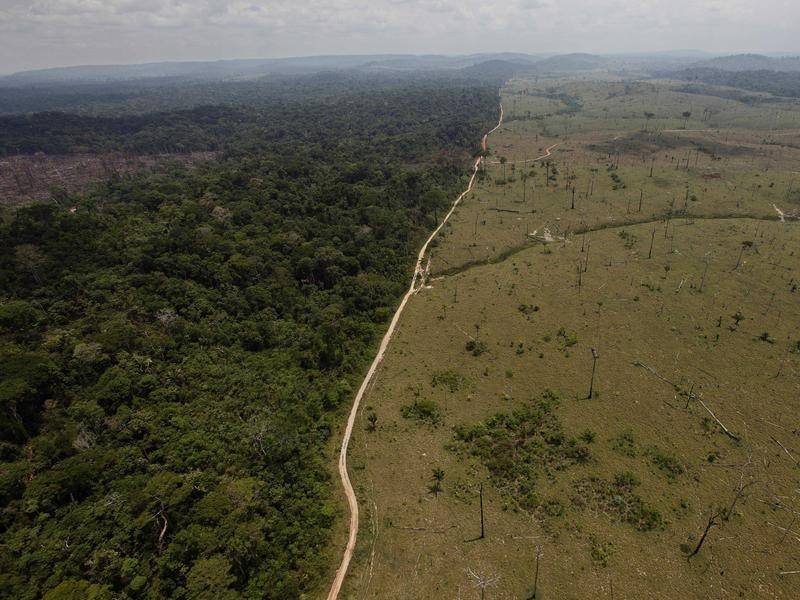Eight Amazon nations’ inability to come to a deal to safeguard their own forests is a sign of the more significant, global challenges involved in reaching a deal to combat climate change.

Eight Amazon nations agreed to a list of unified environmental policies and measures to strengthen regional cooperation at a significant rainforest summit in Brazil on Tuesday, but they were unable to agree on a shared goal to stop deforestation.
Luiz Inacio Lula da Silva, the president of Brazil, had been pushing for the region to unite behind a common policy of ending deforestation by 2030 — one he had already adopted. Luiz Inacio Lula da Silva has staked his international reputation on improving Brazil’s environmental standing.
Instead, a coalition to fight forest destruction was established by the joint declaration signed on Tuesday in Belem, Brazil, leaving individual deforestation goals to be pursued by the various nations.
The eight Amazon nations’ inability to come to a deal to safeguard their own forests is a sign of the more significant, global challenges involved in reaching a deal to combat climate change. In order to prevent catastrophic global warming, many scientists believe that policymakers are moving too slowly.
“Our daily temperature records indicate that the planet is melting. Eight Amazon nations cannot be prevented from declaring in bold letters that deforestation must cease in a situation like this, according to Marcio Astrini of the environmental advocacy group Climate Observatory.
Without responding to the declaration, Lula and other national leaders adjourned the meeting on Tuesday. The summit was attended by the presidents of Bolivia, Brazil, Colombia, and Peru, as well as other senior officials from Ecuador, Guyana, Suriname, and Venezuela.
The only Amazonian nations that have not ratified a 2021 agreement between more than 100 nations to work towards halting deforestation by 2030 are Bolivia and Venezuela. Bolivia, where forest destruction is on the rise, is a holdout on the issue, a Brazilian government source told Reuters in the run-up to the summit.
In his speech on Tuesday, Bolivian President Luis Arce did not mention the 2030 goal.
Mauro Vieira, the foreign minister of Brazil, stated during a press conference that the declaration’s reference to “an understanding about deforestation” “in no way whatsoever will divide the region,” he added.
The Amazon Cooperation Treaty Organization (ACTO) met this week for the first time in 14 years with the goal of reaching a broad consensus on topics ranging from combating deforestation to funding sustainable development.
But disagreements over deforestation and oil development led to tensions to arise in the run-up to the summit.
Additionally, other Amazon nations rejected Colombia’s leftist President Gustavo Petro’s ongoing effort to stop new oil exploration in the region. Petro compared the right-wing denial of climate science to the left’s desire to continue drilling for oil in his speech on Tuesday.
He asserted that the notion of a “slow energy transition” away from fossil fuels was a means of postponing the activities required to halt climate change.
Brazil is debating whether to develop an offshore oil find that has the potential to be very large near the Amazon River’s mouth and the country’s heavily forested northern coast.
Brazilian Energy Minister Alexandre Silveira told reporters after Petro’s speech that “what we are discussing in Brazil today is research of an extensive and large area — in my vision perhaps the last frontier of oil and gas before… the energy transition.”
Silveira advised conducting an investigation into the available oil before making a decision.
Aside from deforestation, the summit did not set a deadline for ending illegal gold mining, but leaders did agree to work together on it and to more effectively combat transnational environmental crime.
The Belem Declaration, the final joint statement, made a strong case for indigenous rights and protections while also pledging cooperation in the areas of water management, health, shared negotiating stances at climate summits, and sustainable development.
The declaration also established a scientific body, akin to the UN’s International Panel on Climate Change, to meet annually and produce authoritative reports on science pertaining to the Amazon rainforest, as previously reported by Reuters.